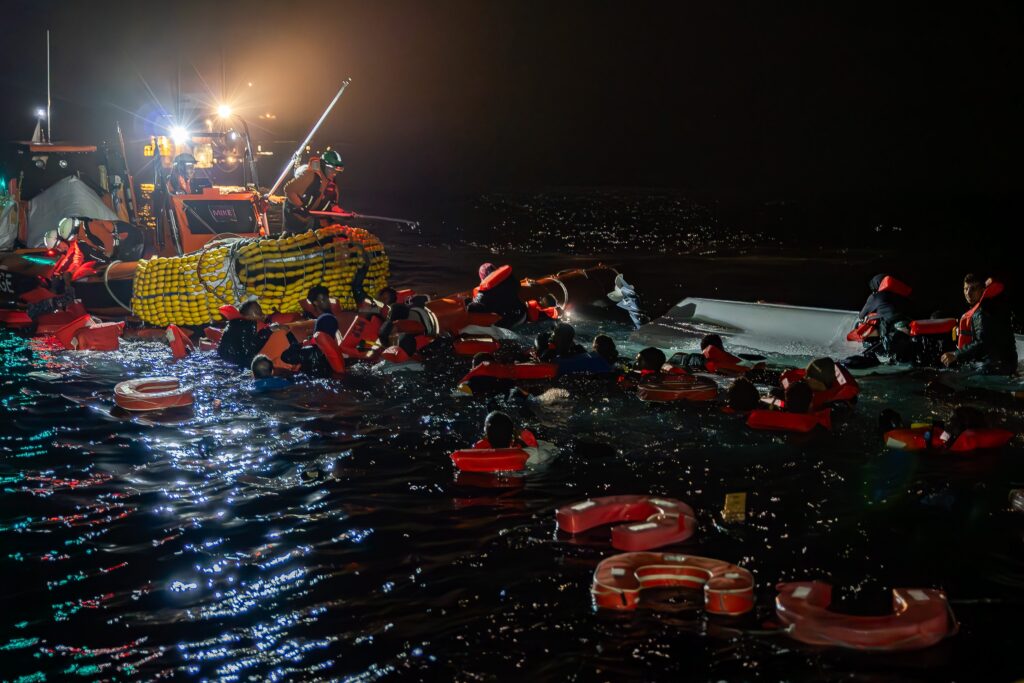Doctors Without Borders, an NGO performing search and rescue missions in the Mediterranean, has accused the Libyan coastguard of hampering an attempt to save more than 170 people making the perilous journey across the sea to Europe.
In a statement, the NGO, also known as Médecins Sans Frontières (MSF), said its ship had come to the rescue of two boats in international waters on Saturday: a small fibreglass boat carrying 28 people and a double-deck wooden vessel with 143 people onboard, which appeared to be in distress.
The organisation said that as it approached the larger boat, the Libyan coastguard (LCG) also came near and “performed dangerous manoeuvres” that put the people onboard, mostly Syrian refugees, at even greater risk.
In a video taken by crew on a support aircraft operated by the maritime rescue NGO Sea-Watch, a patrol vessel moves into position between two rigid dinghies operated by MSF, one of which has already started taking people onboard. The positioning makes it impossible for the second dinghy to move towards the vessel in distress.
Speaking in a video posted on X, an MSF official said the Libyan patrol vessel had “started to perform dangerous manoeuvres, blocking the RIBs [rigid inflatable boats]”.
A man on the aircraft footage is heard saying: “They are trying to intimidate the second RIB.” A woman’s voice on the plane is heard saying: “What they are doing is, like, really, really, really dangerous.”
Juan Matías Gil, the head of the MSF’s search and rescue mission in Rome, said the Libyan coastguard had attempted to tow away one of the dinghies. “We were never going to allow this. We [the ship Geo Barents] are running under the Norwegian flag so the boat is Norwegian territory in international water. We don’t know where we would have ended up if they had managed to board our boat,” he said.
Gil said the interference with its mission lasted “for around two hours” despite communicating in English and Arabic with the Libyan coastguard, which under international law is obliged to rescue anyone in distress. “It was only after tense negotiations and calls to the Norwegian and the Italian and Libyan authorities did they finally leave but not before making further threats towards us,” MSF said.
The people onboard the ships were “mostly from Syria” and included a number of children under 13 and a number of unaccompanied minors, Gil added.
The incident came after survivors said as many as 60 people had died last week in the Mediterranean after setting out from Zawiya on the Libyan coast. The 25 survivors said their dinghy’s engine had broken down after three days, leaving the group adrift for days before being rescued by another humanitarian group, SOS Méditerranée.
The International Organization for Migration said last week the Mediterranean continued to be the most dangerous route for migrants and refugees with more than 3,000 deaths and disappearances in 2023.
The EU, which provides financial support to the Libyan coastguard for training and for vessels, said all authorities had acted in compliance with international law.
A spokesperson for the European Commission said: “We are not able to control the actions by individuals. When it comes to search and rescue it is clear that search and rescue is an international obligation for everyone and international maritime law is very clear. All actions that put people’s lives at risk must be avoided at all times.”
